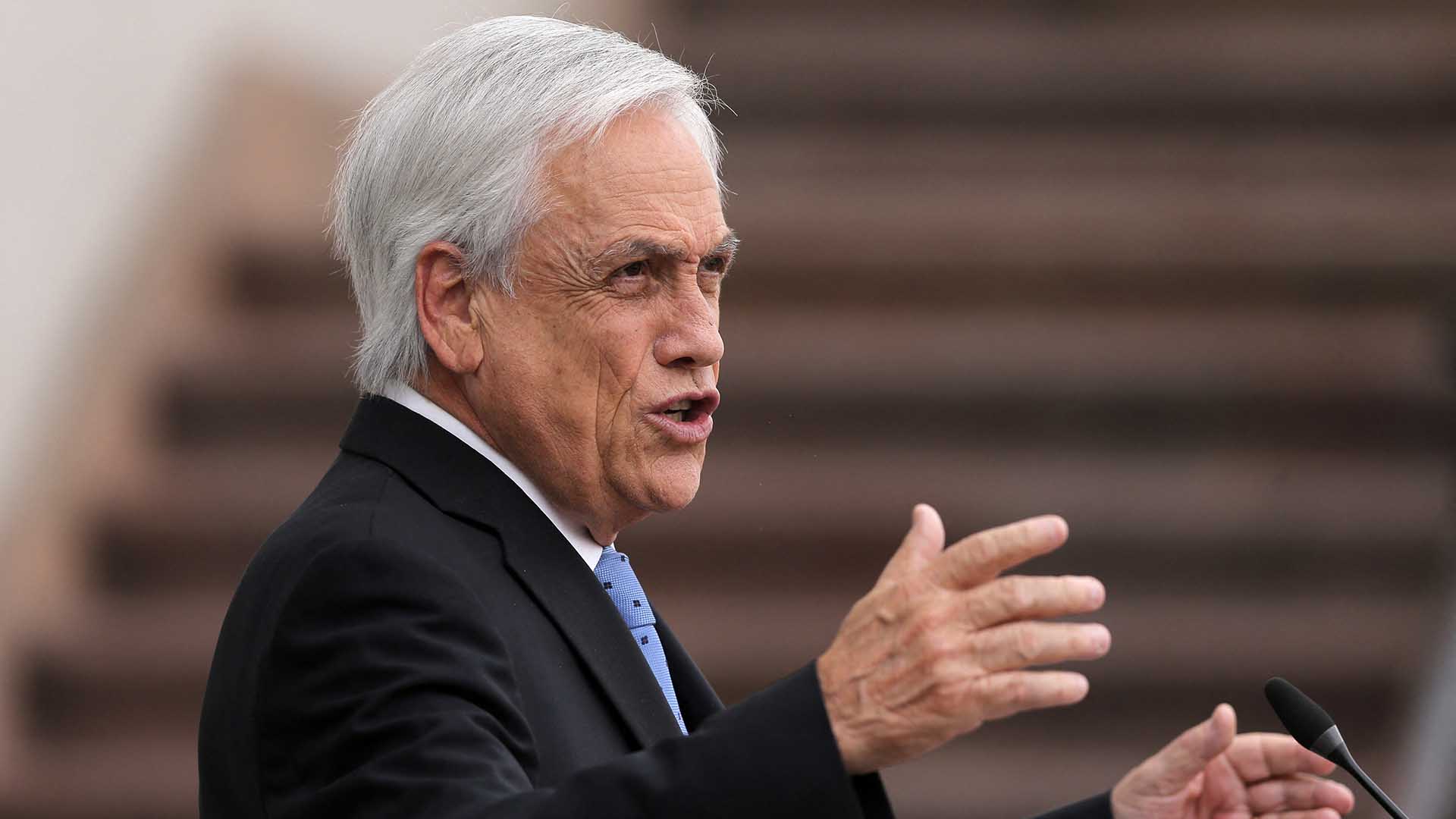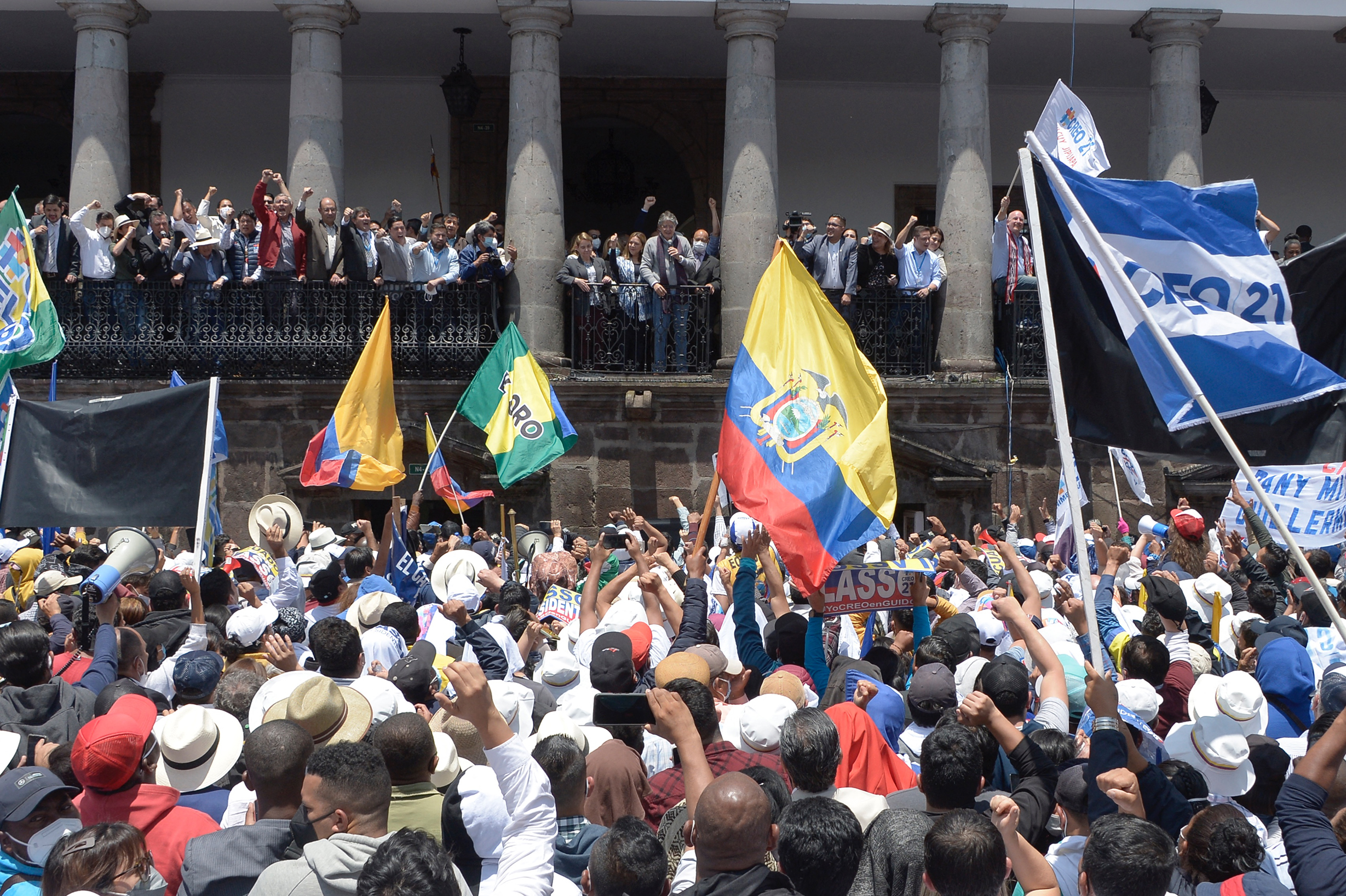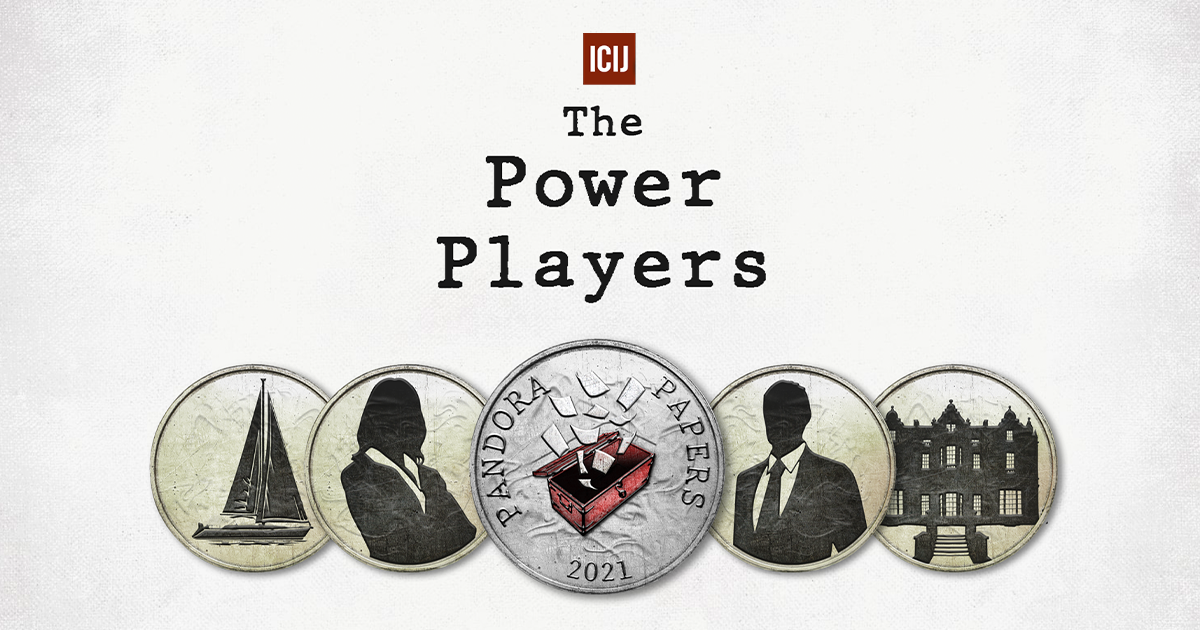Lawmakers in Chile voted to impeach President Sebastián Piñera Tuesday morning, accusing him of violating the constitution, following revelations in the Pandora Papers about a possible conflict of interest in the sale of a mining company by his children to a close associate. Part of the payment was contingent on the government not moving to enact new environmental regulations that would prevent the mining project.
The vote took place at around 8 a.m. after a legislative session that lasted nearly 24 hours.
Opposition lawmakers in the lower house of the legislature, the Chamber of Deputies, gathered just enough votes to move forward with the process. The impeachment proceedings now move to the Senate, which acts as a jury and where a supermajority vote is needed to remove the president from office. The opposition is not expected to secure enough support for the impeachment in the Senate.
✅ Con 78 votos a favor, 67 en contra y 3 abstenciones la Cámara de Diputadas y Diputados aprueba la #AcusaciónConstitucional contra el Presidente @sebastianpinera.
Pasa al @Senado_Chile, que debe decidir como jurado. pic.twitter.com/WPx4RNQimR
— Diputadas y Diputados de Chile (@Camara_cl) November 9, 2021
“I want it to be an example and testimony that this parliament is capable of putting an end to the abuses, to the impunity with which this government has acted,” said opposition leader Jaime Naranjo, who spoke for more than 14 hours of the session.
Speaking from the floor of the legislature in the early hours of the morning, Piñera’s attorney Jorge Gálvez blasted the proceedings. “There isn’t a single piece of evidence” linking Piñera to any wrongdoing, he said. The impeachment process was rushed for political reasons, he said. “There cannot be a purely political hearing to remove the president of the republic,” Gálvez said.
Piñera is one of three sitting Latin American presidents whose offshore dealings came to light in the Pandora Papers, a global investigation led by the International Consortium of Investigative Journalists. Of the 35 current and former heads of states who appear in the records, 14 are from Latin America.
The vote to impeach marks the latest fallout from revelations in the leaked records, which have fueled hundreds of stories from ICIJ and partnering newsrooms and seen major fallout around the world, including investigations against world leaders named in the exposés, tax probes and pledged reforms.
ICIJ partners, the Chilean Center for Investigative Reporting (CIPER) and Labot, reported that in December 2010, nine months into Piñera’s first term as president, his children sold their part in a mining company for $152 million to a close friend of Piñera, Carlos Alberto Délano.
The mining company, Minera Dominga, was exploring a controversial $2.5 billion copper and iron project that would take place close to a sensitive habitat for whales, dolphins, birds and Humboldt penguins.
According to a contract found in the Pandora Papers, the first $138 million of the sale was made through shell companies registered in the British Virgin Islands, and was to be paid in three installments. The contract included a clause that said the third installment of $9.9 million would only be paid if, by December 2011, there was an absence of regulatory measures that would “irrevocably” prevent a mining project under consideration, like the creation of a nature preserve. Those protective measures would depend on decisions made by Piñera’s administration.
No regulatory changes were made and it is unclear whether the final payment went through. The mining project has been in legal flux for years and is still pending approval.
Piñera has denied that there was a conflict of interest, saying that he hasn’t managed his family’s businesses in 12 years. He also says that the information revealed in the Pandora Papers was already known and part of a 2017 investigation in which he was cleared of any conflict.
The Chilean news outlet CIPER reviewed records of the 2017 hearing and found no reference to the British Virgin Islands contract. Information about the controversial clause conditioned on no environmental action wasn’t disclosed to the judges ruling on the case.
Piñera is separately under criminal investigation by Chile’s national prosecutor, who launched a probe five days after the Pandora Papers were first published. The probe focuses on the 2010 deal and could lead to bribery and tax-related charges.
Opposition leaders seeking to impeach Piñera said that the fact that he was president at the time the deal was signed presents a conflict of interest. They moved to impeach Piñera on October 13.
On Friday, a parliamentary commission established by the Chamber of Deputies voted along party lines to reject impeachment. The vote by the full chamber was postponed for hours with Naranjo speaking and reading for nearly 15 hours. The filibuster was meant to give a lawmaker who had been quarantined because of COVID-19 exposure time to vote.
The opposition was hoping the impeachment would move forward before November 21, when the country is holding presidential and legislative elections. Piñera isn’t on the ballot, as the Chilean constitution prohibits consecutive presidential runs, but analysts have said that the Pandora Papers revelation could hurt the candidacy of Sebastián Sichel, the ruling party’s candidate. Piñera’s second term as president ends in March.




